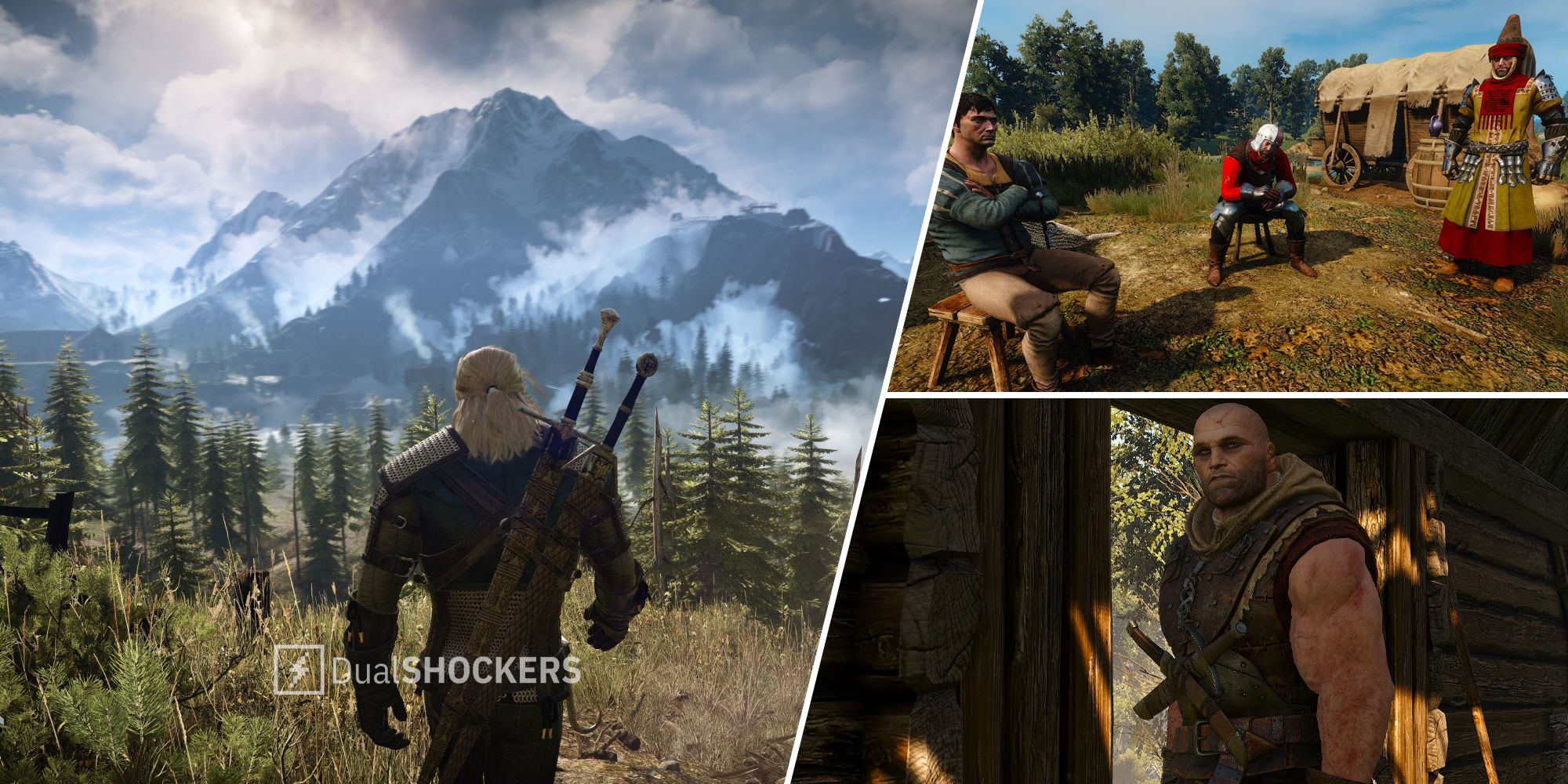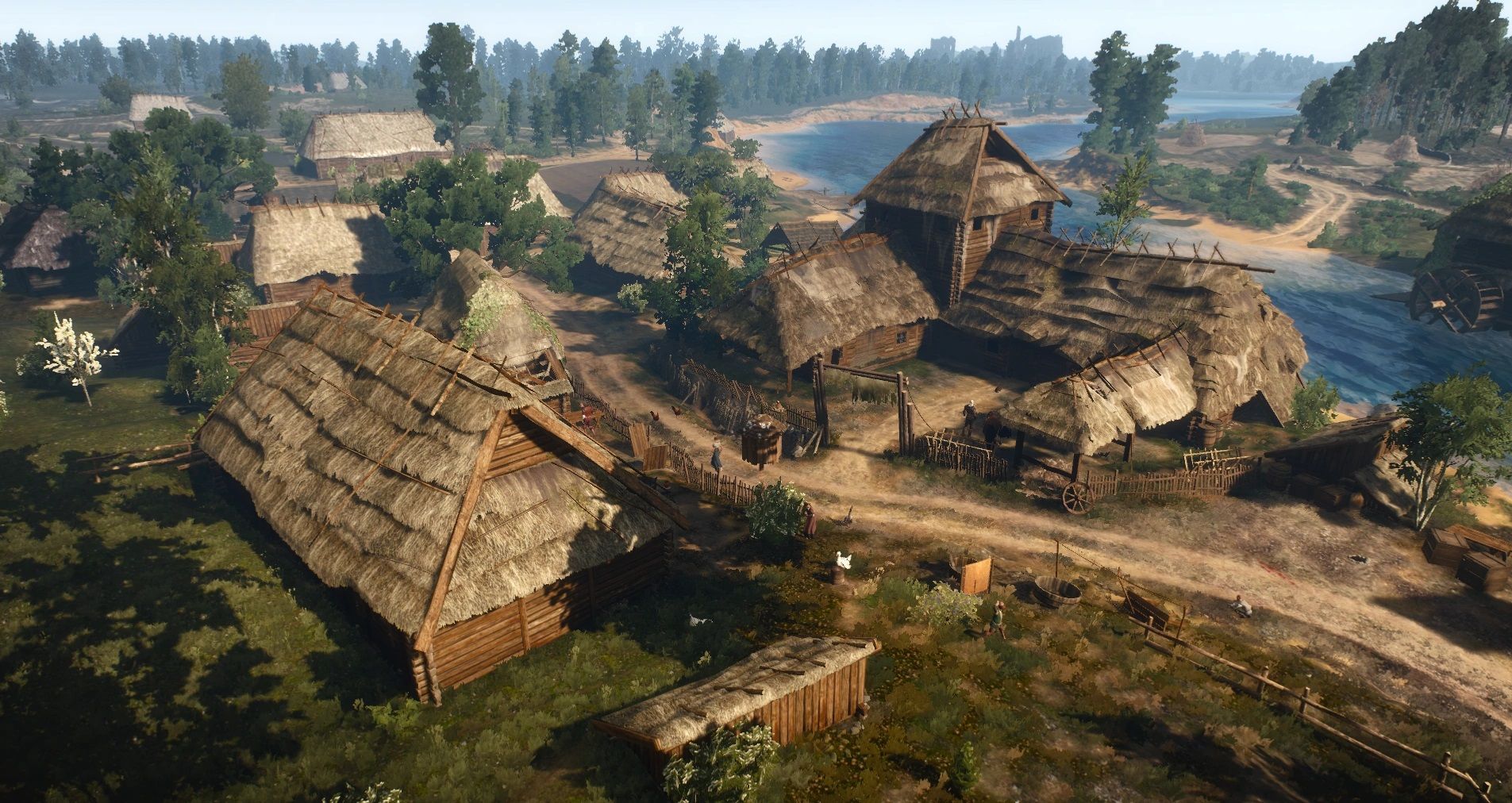I recently started a new game of The Witcher 3, having failed to complete it first time round and failing to jump back in after several long breaks from the game (a common problem when returning to RPGs after a long hiatus). And I'm glad I did, because even in those tentative first hours in White Orchard - essentially the game's tutorial area - I've been bombarded with nuggets of excellent quest design and world-building. A good seven years on from its original release, it still does them better than most other games.
As with many RPGs, the early quests see you doing modest jobs for modest people. On the face of things, these quests start out much the same as any RPG quest - retrieve a box from a swamp, search for a dead body on a battlefield, and so on - but the beauty of how The Witcher 3 handles them is that every single little quest feeds into some kind of bigger picture, teaching you about the game world while challenging your morality.
If it's not immediately obvious from the bodies hanging from trees, burned down building husks, and battlefields still strewn with corpses, White Orchard is a troubled place - freshly conquered by the powerful kingdom of Nilfgaard and existing in an precarious limbo state as it transitions to a new rulership. People are scared, families are broken, and there's plenty of opportunity to pick up some work and earn some coin for you, Geralt - a reputed monster-killing mercenary for hire.
White Orchard may be a tutorial area, but its quests already hit hard.
One early quest sees a local merchant ask you to pick up a box from a nearby caravan, which was ostensibly attacked by monsters in the nearby swamp. Good early-level RPG adventurer that you are, you oblige. Upon arriving at the caravan, more observant players , with the help of detective-vision Witcher Sense, will notice that the nearby bodies are riddled with arrows - monsters? Bows-and-arrows? Something smells fishy and it's not just those Drowners you have to fight.
Now, you can keep things simple, return the mystery box to the merchant, and claim your reward. Or you can probe him further. Question him on the bodies, and a horseback chase will ensue, after which you eke out of him that he's the member of a local resistance against the occupying forces, that the caravan was supplying medicine to the occupiers, and that he was intercepting the supplies for the resistance. It's up to you whether to return the supplies to him and let him go, take the supplies for yourself and let him go, or turn him in to the Nilfgaardian occupiers.
It's a veritable broth of murky morality, with plenty of gristly bits. This guy lied to you and killed innocent caravaneers just doing their job on the one hand, but you can't deny that he's doing it in the name of (what he believes to be) a 'higher cause.' But then again, is it on you to take one side or another in this war that's really nothing to do with you? There are many layers here, and the game doesn't judge you for making one choice or another.
When I opted to keep the supplies and let him go, the guy was naturally upset, saying something along the lines of 'I guess I expected no more from a Witcher.' That's the stuff that stays with me in a lot of these early quests: the helpless disappointment of regular people when you act selfishly, and conversely their pleasant surprise when you do something altruistic, which seems to give them a glimmer of hope during this most terrible of times that there are still 'good people' out there.
The question of 'good guy and bad guys' in the wider conflict gets an extra dose of perspective in another White Orchard quest, where you help a man search a battlefield for the corpse of his brother. Eventually, you find that the brother is wounded but alive, having been saved from the battlefield by an equally wounded Nilfgaardian soldier. When the brother refuses to leave without the Nilfgaardian who saved him, you advise the quest-giver on whether to leave the Nilfgaardian behind or take him in with his family (which of course carries a lot of risks in times of war).
Your XP and mechanical rewards are unaffected by your choice, but if you pop into their homestead later in the game, you'll find them all living contentedly together. It's a far more tangible and human reward that some numbers to fill up your XP bar or coffers.
A lot of the time, the consequences of your decisions are far more subtle - little more than a line of dialogue that sheds light on the ways of the world as well as the circumstances of the people you meet. After I negotiated a higher price with a local farmer to get rid of a local ghoul, upon turning in the quest the farmer quipped something along the lines of 'Well, there goes my daughter's dowry.'
Would I ever see the repercussions of this? No, but in a single sentence I learned that this is a world in which shitty mediaeval laws around marriage very much apply, and that while I helped these people with one kind of struggle, my shrewd haggling also compounded their other struggles. There was no mechanical consequence, my game would be unaffected, but it pricked my conscience, and from that point on made me think twice about which people I'd drive a hard bargain with (Lords and Barons, fair game. farmers and villagers, less so).
To this day, few games humanise quests quite like The Witcher 3 does, layering the smallest of stories with mature moral gravitas. So on this 20th year of their existence, let's raise a chalice to what they've delivered, before pulling their ear to our mouth and whispering 'The Witcher 4 better be as good as this.'


